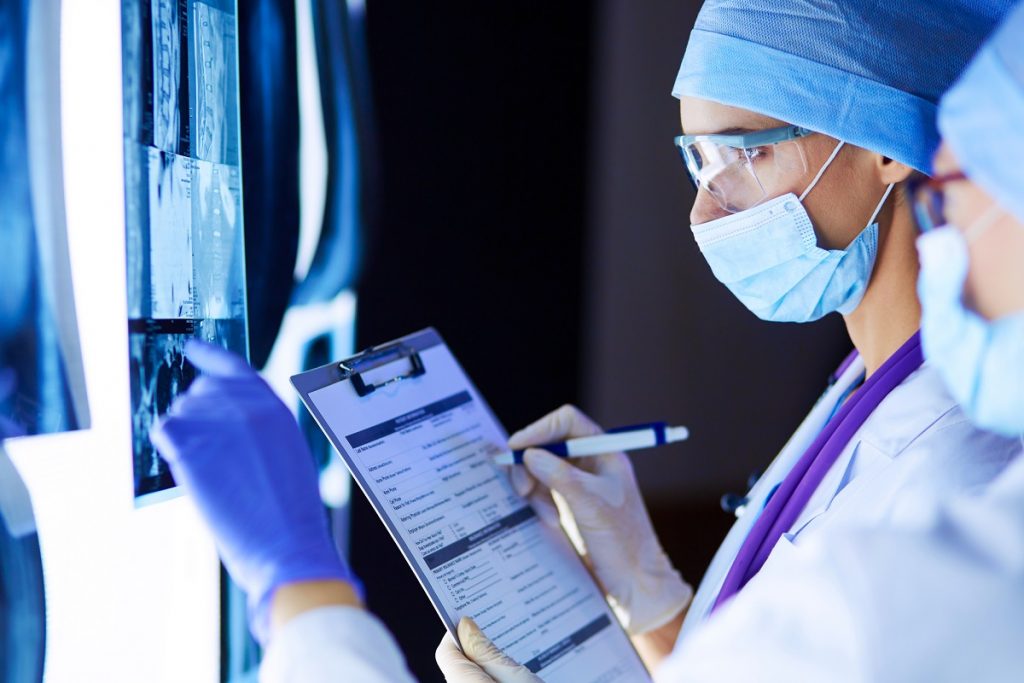Israel has chosen 19 programs for a new digital health project that will enable health organizations like HMOs and hospitals to build R&D infrastructure and encourage them to expand their partnerships with health tech startups and companies.
The program was approved by Israel’s Ministry of Health, National Digital Initiative, and the Israel Innovation Authority Funding will include NIS 100 million ($30 million) over three years to be drawn from the National Digital Health Plan.
The 19 programs were selected from a total of 30 that applied after a call for proposals from the organizations leading the initiative. They were evaluated to determine implementation, potential to advance Israel’s health system, and how well they lend themselves to forming multiple partnerships.
The winning health organizations have the option to submit a request for further support next year (up to a maximum of three years).
The selected programs are:
- Tel HaShomer Hospital, Hadassah Medical Center, Rambam Health Care Campus, Assuta Hospital, and Rabin Medical Centers will establish a digital infrastructure for clinical tests.
- Patho-Lab Laboratory will establish unique research and development infrastructure in the area of digital pathology.
- Assuta Medical Center will make videos of endoscopies available for research and development.
- Hadassah Medical Center, Shaare Zedek Medical Center, and Israel’s third-largest HMO Meuhedet, will collaborate to make joint hospital data and research communities available.
- Ashdod-based Assuta Hospital will establish a testing environment for smart hospitalization at the hospital as well as in patients’ homes.
- Mayanei HaYeshua Medical Center and the Holon Institute of Technology will collaborate to make information in the areas of mental health and midwifery accessible.
- Tel HaShomer Hospital will establish a research and development infrastructure for full genetic sequencing (T2T) combined with additional types of information.
- The Bayit Balev chain of retirement resident homes will create research and development infrastructure combining data from a variety of institutions caring for the elderly population such as assisted living facilities, geriatric hospitals, and rehabilitation centers.
- Clalit and Leumit HMOs, Tel HaShomer, Ichilov, Rambam, Soroka, and Wolfson hospitals, as well as the Government Hospitals Division, will make data from a variety of sources accessible, for the purpose of advancing many research initiatives.
“In order to advance innovative health services in the Israeli health system, and to allow for the development of the industry in Israel, there is a need to quickly create effective partnerships, at competitive costs,” said Dror Bin, CEO of the Israel Innovation Authority. “The existing databases in the health system are some of the best in the world in terms of their range, and making them accessible to industry will allow for the breakthrough of Israeli innovation in the area of health-tech.”
“The new program that is being developed together with the Innovation Authority and Israel Digital Initiative is significant news for continued investment in the health system, in order to promote research and development,” said Esti Shelly, director of Digital Health in the Ministry of Health. “This will provide patients with services and treatments at the forefront of medical innovation, which is tailored to the needs of the Israeli population.”
“There are two exceptional opportunities in the area of digital health in Israel: first, the innovation of the ‘Start-Up Nation’ and the quality of human capital in Israel; and second, the knowledge, research capabilities and existing data that exists within the Israeli health system,” said Asher Dolev, head of Israel Digital at the National Digital Israel Initiative. “The new program will strengthen the integration of these advantages, and will help a variety of Israeli companies, entrepreneurs, and researchers in the field to collaborate with Israeli health organizations and to bring innovation into the Israeli health system.”
Related posts

Israeli AI Safety Tool Among TIME’S Best Inventions For 2024

TAU Team Discovers Mechanism To Eliminate Cancerous Tumors

Ashdod Port Investing In Startups As Part Of Innovation Strategy




Facebook comments